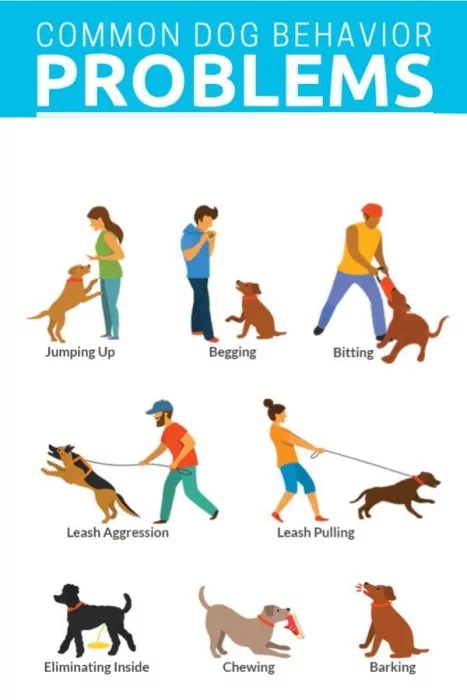Why Dog Training Near Me is Vital for Your Canine Friend
Why Dog Training Near Me is Vital for Your Canine Friend
Blog Article
Unlock Your Pet's Prospective: Proven Dog Training Methods for Success
Efficient canine training is a nuanced process that hinges on comprehending canine actions and utilizing medically backed methods. By including favorable support, developing clear commands, and prioritizing socializing, pet owners can grow a productive partnership with their pet dogs.
Recognizing Dog Behavior
Understanding pet habits is essential for effective training and fostering a positive partnership in between pet dogs and their owners. An extensive understanding of canine body language, vocalizations, and social interactions is vital for identifying their needs and feelings. Canines communicate mostly through non-verbal signs; as an example, a wagging tail might suggest excitement, while pinned ears can indicate fear or submission.

Additionally, ecological elements play a considerable duty fit a pet dog's actions. Changes in routine, new surroundings, or the visibility of strange individuals can bring about anxiety or stress and anxiety in pet dogs. Recognizing these triggers enables proprietors to mitigate adverse reactions and establish proper training approaches.
Eventually, a deep understanding of dog habits lays the foundation for effective training approaches, enhancing both habits and the overall bond in between the pet and its proprietor. dog training charlotte nc. This knowledge is essential for promoting a well-adjusted, pleased canine buddy
Favorable Support Strategies
Efficient training counts heavily on favorable support methods, which have been shown to produce significant cause shaping desired habits in pets. This method involves rewarding a pet for exhibiting particular habits, consequently increasing the probability that these habits will be repeated. Rewards can take various types, including deals with, appreciation, toys, or play, depending upon what inspires the individual pet dog.

It is important to gradually eliminate rewards as the dog finds out the habits, transitioning to periodic reinforcement. This method maintains the habits with time while stopping dependence on continuous incentives. By focusing on positive support, trainers can grow a relying on connection with their pet dogs, promoting a cooperative and healthy training setting that enhances general obedience and performance.
Establishing Consistent Commands
An essential facet of successful pet training is the facility of consistent commands. Consistency in commands is critical for effective interaction in between the trainer and the pet dog. When commands are consistent, canines find out to connect specific words with desired habits, which increases the training process and improves understanding.
To establish constant commands, it is crucial that all member of the family utilize the same terminology and motions. As an example, if someone utilizes "rest" while an additional states "sit down," it can develop confusion for the pet. Select clear, distinctive words for commands and make certain every person involved in the pet dog's training adheres to these selections.
Additionally, rep is key. Enhance commands through frequent method, making certain that the dog gets sufficient opportunities to respond properly. When a pet dog successfully complies with a command, prompt favorable support should adhere to. This could be in the kind of deals with, praise, or play, strengthening the connection between the command and the activity.
Lastly, be individual. Developing constant commands takes some time and initiative. With devotion and clearness, you will aid your canine develop a strong understanding of expectations, eventually resulting in a mannerly friend.
Socialization and Exposure
Socializing a dog is vital for cultivating a confident and well-adjusted companion. This process includes revealing your dog to a variety of environments, individuals, and other animals to create their social abilities and versatility. Early socializing, ideally in between the ages of three to fourteen weeks, is critical, as it prepares for a dog's future behavior.
During socializing, aim to give positive experiences in various settings, such as parks, hectic streets, and homes with other pet dogs. Present your canine to numerous stimuli, including noises, views, and smells, making certain that each experience is satisfying. This exposure assists mitigate worry and anxiousness, leading the way for an extra durable pet dog.
Involving in regulated team play sessions with various other pets can also improve social skills, instructing your family pet proper communications and limits. Always check your canine's comfort degree during these experiences, slowly raising exposure as their confidence expands. Bear in mind, the goal is to create a well-rounded pet dog that grows in diverse scenarios, advertising an unified partnership with both human beings and various other pets. Prioritizing socialization will considerably contribute to your dog's total happiness and habits throughout their life.
Conquering Common Educating Obstacles

Canines might battle to focus in unknown or hectic setups. Progressively desensitize your pet dog to diversions by beginning training in a peaceful environment and gradually presenting more stimulations as they become proficient.
Additionally, behavior issues like leaping or too much barking can become irritating. Address these by educating different behaviors, such as sitting steadly when welcoming guests. Uniformity and patience are vital; reinforce desired behaviors regularly and stay clear of scolding, which can result in complication.
Finally, recognize that each canine is special, and training timelines may vary. Tailor your strategy to your pet dog's specific demands, and look for expert guidance if necessary. With determination and the appropriate methods, conquering these difficulties can result in a well-trained, pleased canine buddy.
Verdict
Finally, opening a dog's possible necessitates a thorough approach that incorporates an understanding of canine behavior, the application of favorable reinforcement strategies, and the facility of regular commands. Early socialization and exposure to varied settings additionally enhance a pet's flexibility and self-confidence. By attending to common training challenges with customized methods and persistence, a Going Here cooperative and harmonious relationship between canine and handler can be fostered, eventually causing a well-behaved buddy efficient in thriving in numerous scenarios.
Reliable pet dog training is a nuanced procedure that hinges on comprehending canine actions and utilizing medically backed approaches.Recognizing pet dog actions is vital for efficient training and cultivating a positive partnership between canines and their owners.Reliable training relies greatly on positive reinforcement techniques, which have actually been revealed to generate significant results in forming wanted behaviors in pet dogs. When commands are uniform, canines discover to associate particular words with preferred behaviors, which increases the training procedure and boosts understanding.
In verdict, unlocking a canine's prospective necessitates an extensive method that includes an understanding of canine habits, the application of favorable support strategies, and the establishment of consistent commands.
Report this page